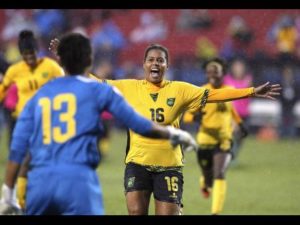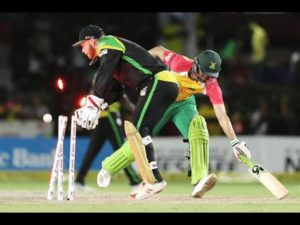Dalton Myers| Our Athletes Need Support
Published:Saturday | February 15, 2020 | 12:14 AM
Source: http://jamaica-gleaner.com/article/sports/20200215/our-athletes-need-support
The track and field season has begun in earnest with several local and international meetings schedules each week. Locally, a lot of focus is on the juniors, while internationally, the seniors are currently competing primarily indoors. However, most eyes will focus on Tokyo 2020 and the Diamond League Finals later this year.
Local track meets create a platform for our athletes to develop, and for coaches to see where their charges are relative to other competitors. What many persons may not know is that many athletes are struggling financially, mentally, and physically on this journey. As fans, we mostly see the end results and very often criticise them when they do not meet our expectations.
The truth is, our athletes need way more support than we are able to provide as a country but there is definitely more we can do in helping them. I know the argument is that when we help them that the success is personal and said athlete may never help anyone in return. However, our athletes are our ambassadors, who help to advertise ‘Brand Jamaica’. So while we do not necessarily need to individually fund athlete development, collectively, we have a role in helping them in whatever way possible.
Athletes struggle with injuries and I am happy to see several on the path to recovery. The likes of Kemar Bailey-Cole, Yohan Blake, Ristananna Tracey and Michael O’Hara have shown signs that they have shrugged off those injury worries. I know there are some others out there who continue to struggle with various types of injuries, but I hope to see them at their best this year.
Athletes need many forms of support to do well. It takes a lot of financial assistance to train at the highest level, maintain a proper diet, physical and emotional well-being, as well as other expenses such as weight training, transportation and nutritional support. This is why I have always advocated for more support for our athletes from corporate Jamaica, our Government and the local sporting associations. I know sometimes it’s hard to quantify this help, and for corporate Jamaica, it may be even more difficult to understand or place a value on this assistance.
HUGE INVESTORS
A large portion of the money pumped into track and field comes from apparel sponsors, Puma, Nike and adidas. They invest a large amount in our track and field programme, with these three being the main sponsors of our Olympics, World Championships teams and events such as Grand Prix. They are huge investors in our high-school programme, local track and field clubs and institutions. I am not in any way suggesting that several others do not help fund our sports programme or undervaluing their investment but generally a lot more needs to be done.
We may have issues with how apparel companies investment is done in high schools, and in some cases at professional level, but without these sponsors in Jamaica, we would have struggled in this current climate. Obviously, they invest because they see a direct correlation between the success of our track and field and their brands. However, there is still a huge gap to be filled.
BRAND RECOGNITION
The other issue for me is that not many of our athletes allow the average fan to know them, or for their brand to be recognised nationally. This causes another issue as the average fan then does not get a chance to understand the story behind a particular athlete and empathise with him/her when he/she is struggling. Some of this is because athletes locally do not seem to want to work on their brand and/or do not see the value in it. This leaves fans to rely on what they hear or just the few seconds they see them on the track.
As we follow the campaign to Tokyo, we should think about what role we can play in investing in our athletes or just providing support. We can think about volunteering at track and field meets locally or assisting with clubs, schools or institutions. We can also support other track meets at the stadium in addition to Boys and Girls’ Athletics Championships or Racers Grand Prix. These are small but helpful. On a larger scale, I hope we can convince more corporate sponsors to support our athletes now and not just when they win medals. Our athletes desperately need your support.
Dalton Myers is a sports consultant and host of The Drive Phase Podcast. Email feedback to daltonsmyers@gmail.com or tweet @daltonsmyers
Source: The Jamaica Gleaner







Recent Comments